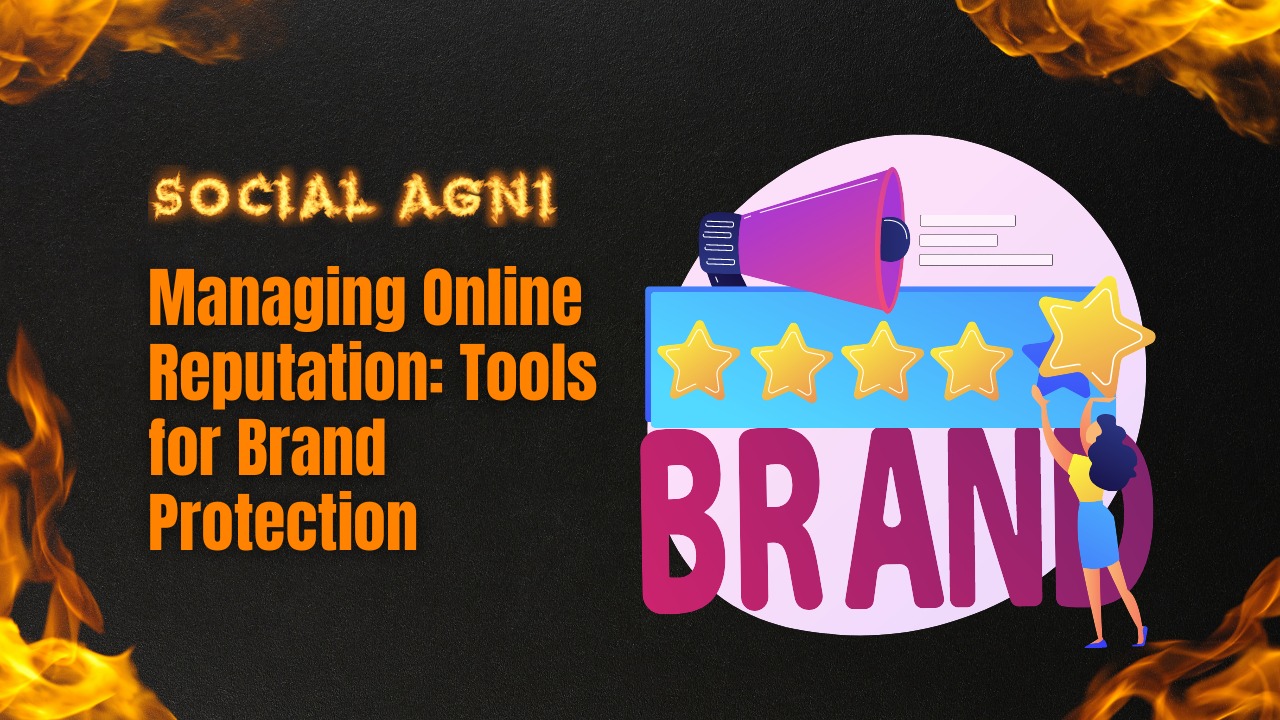Online reputation management is essential to corporate success in the digital era. The Internet and social media affect a company’s reputation. Online reputation management involves actively establishing a favorable brand image, preserving brand integrity, and gaining consumer trust. Strong internet reputations may boost a firm. It may retain consumers, attract new ones, and influence purchases. A bad internet reputation may damage credibility, client trust, and profitability. Thus, firms must invest in effective online reputation management technologies and techniques. To monitor, evaluate, and govern brand narratives online, several online reputation management solutions are available. These technologies let businesses monitor online reviews, detect concerns, and connect with consumers to maintain a favorable online presence. Online reputation monitoring is vital. These technologies monitor brand mentions on social media, news sites, blogs, and forums. Companies can immediately spot bad brand mentions and sentiment research and take action. Online reputation management also requires social media management tools. Businesses must actively connect with their audience, reply to client inquiries, and actively maintain their social media presence due to the extensive usage of social media. Schedule postings, measure interaction data, and analyze brand sentiment using social media management tools. Businesses must monitor and manage social media and consumer evaluations and comments. Review and feedback management technologies let firms gather and manage customer evaluations from several platforms, respond to feedback quickly, and address concerns to maintain a favorable brand image. Online reputation management includes crisis preparation. Online crisis management technologies enable companies to monitor and respond to emerging concerns, limit bad information, and safeguard their brand reputation during difficult times. SEO is vital to online reputation management. SEO tools increase search engine rankings, brand visibility, and online presence. Companies may eliminate undesirable and detrimental content from search engine rankings by using efficient SEO methods. Brand monitoring and sentiment analysis technologies also reveal customer brand perception. These tools help companies understand how their brand is regarded, identify areas for development, and make educated reputation-boosting decisions. Online Reputation Monitoring Tools Brand reputation management relies on internet reputation monitoring technologies. These solutions let businesses monitor social media, news websites, blogs, forums, and review sites. By regularly monitoring brand mentions and sentiment analysis, firms may swiftly discover and manage unfavorable or detrimental information. Online reputation monitoring tools: Google Alerts Google’s free product delivers email notifications when it indexes new content related to a term or brand name. Brand, product, industry, and other relevant phrases can be set up as alerts. Google Alerts lets companies monitor web mentions and brand sentiment. Brand24 Brand24 monitors brand references online in real-time. Sentiment, influencer, and competitor analyses are available. Brand24 lets organizations measure social media mentions, hashtags, consumer sentiment, and audience engagement. Mention Mention lets companies watch brand mentions and keywords in real-time on social media. Users may watch social media, news, blogs, and more on its easy interface. Mention provides sentiment analysis, competition analysis, and reputation management reports and notifications. Hootsuite This famous social media management program also monitors. Track brand mentions, industry keywords, and hashtags across social media using streams. Hootsuite helps companies manage their reputation by tracking brand mentions, engaging with customers, and collaborating with colleagues. Businesses may learn about their brand’s internet reputation using these tools. Businesses may improve their internet reputation by monitoring brand mentions, sentiment, and trends. Social Media Management Tools Business reputation management requires social media management technologies. These solutions simplify scheduling, tracking brand mentions, audience engagement, and social media performance analysis. Popular social media management tools: Buffer Businesses use Buffer to schedule and publish posts on Facebook, Twitter, Instagram, LinkedIn, and Pinterest. Its user-friendly design, content planning calendars, and analytics track post performance and interaction. Businesses can communicate with customers and track brand mentions in real-time with Buffer. Sprout Social This social media management tool has several reputation management capabilities. It lets companies plan posts, track brand mentions, communicate with consumers, and assess social media performance. To understand the brand impression and sentiment, Sprout Social offers powerful reporting, analytics, sentiment analysis, and social listening. Hootsuite Hootsuite monitors online reputation and manages social media. It lets companies manage numerous social media accounts, plan posts, monitor brand mentions, communicate with audiences, and measure social media statistics. Hootsuite helps organizations manage their social media reputation by providing a central dashboard. HubSpot This marketing automation software manages social media. Businesses may schedule and publish social media posts, monitor brand mentions, communicate with followers, and track results. HubSpot’s social media analytics and reporting tools assess brand reputation. These social media management tools allow businesses to manage their social media presence and communicate with their audience from one place. Businesses may manage their online reputation and respond to consumer feedback by scheduling postings, tracking brand mentions, and assessing social media performance. Review and Feedback Management Tools Businesses need review and feedback management technologies to handle client feedback across platforms. These technologies let organizations gather, monitor, and analyze customer reviews to fix concerns, engage consumers, and maintain a favorable brand reputation. Review and feedback management tools: Trustpilot Trustpilot helps businesses collect and publish consumer reviews. Review invites, monitoring, and statistics are available. Trustpilot lets companies interact with customers, reply to reviews, and highlight good comments to create trustworthiness. Yotpo A complete review and consumer feedback tool. It collects and manages customer reviews, generates reviews, analyzes sentiment, and provides consumer insights. Yotpo helps businesses collect feedback, reply to reviews, and promote with favorable ratings. ReviewTrackers ReviewTrackers lets businesses collect and track client reviews from several internet platforms. It tracks reviews, analyzes sentiment, and manages responses. ReviewTrackers gives organizations a dashboard to track and respond to customer evaluations, providing proactive reputation management. BirdEye A complete customer experience and reputation management platform. Review monitoring, sentiment analysis, review production, and customer feedback management are available. BirdEye helps businesses gather feedback, respond to reviews, and improve their online reputation by utilizing positive customer experiences. These solutions help organizations manage their internet reputation by gathering consumer input, correcting issues, and highlighting favorable reviews. Businesses may improve customer satisfaction, brand reputation,
